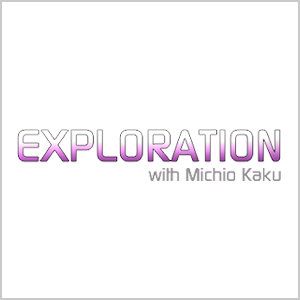On this edition of Exploration, Michio Kaku interviews Randall Stross, biographer of Thomas Edison, and MIT professor Seth Lloyd about quantum computers and other innovations in science which could impact our ability to compete globally.
About the speakers:
(From Randall Stross‘ website:)
I’m a historian who writes mostly about present-day technology, business, and society.
The Launch Pad is the third book I’ve written about Silicon Valley startups. The first was published in 1993: Steve Jobs & the NeXT Big Thing, a story of a startup that struggled and struggled. From the misery of those dark years, Jobs learned much that would serve him well when he returned to Apple.
The other earlier book on startups was eBoys (2000), a fly-on-the-wall account of the workings of then-young Benchmark Capital. Work on it happened to coincide exactly with the dot-com boom in the Valley and the boom’s end.
I’ve recently made one return trip to an earlier era of American startups, when I published a biography of the original serial entrepreneur, Thomas Edison: The Wizard of Menlo Park: How Thomas Alva Edison Invented the Modern World (2007).
The very largest technology companies have served as my book subjects, too. In 1995, I wrote The Microsoft Way and in 2008, Planet Google.
I wrote the Digital Domain column for the New York Times, from the column’s inception in 2004 to its retirement this year. (An archive of the columns is found here.) Earlier, I contributed to The New Republic, U.S. News & World Report, and Fortune.
Before I began the wandering that brought me down a path that led into Silicon Valley of the present moment, I had prepared for an entirely different career as a modern China historian. I spent my senior year of college studying Mandarin at Tunghai University, in Taichung, Taiwan. From there, I began graduate work at Stanford, earning a master’s and a PhD in modern East Asian history. I spent two years (1979-81) in Nanjing, China, doing archival research for my dissertation on early twentieth-century Chinese agriculture.
My first book was a study of the transfer of American technology to China—agricultural technology, in this case: The Stubborn Earth: American Agriculturalists on Chinese Soil, 1898-1937 (1986).
In what would turn out to be a transitional work, moving me closer to the present-day, I published in 1991 a study of Sino-U.S. business ties in the 1970s and 1980s: Bulls in the China Shop and Other Sino-American Business Encounters.
Over the course of teaching for thirty years, I’ve never taught history majors. I taught engineering students at my first teaching job at the Colorado School of Mines. In 1986, I moved to San Jose State University, where I’ve been a professor of business and teach business students. In recent years, my primary teaching assignment has been two courses: Business and Society and Strategic Management.
I was born in 1954, grew up in Topeka, Kansas, and Denver, Colorado, and received my undergraduate education at Macalester College, in St. Paul, Minnesota. I live with my family in Burlingame, California.
************
Seth Lloyd (born 1960) is a professor of mechanical engineering at the Massachusetts Institute of Technology. He refers to himself as a “quantum mechanic”.
His research area is the interplay of information with complex systems, especially quantum systems. He has performed seminal work in the fields of quantum computation and quantum communication, including proposing the first technologically feasible design for a quantum computer, demonstrating the viability of quantum analog computation, proving quantum analogs of Shannon’s noisy channel theorem, and designing novel methods for quantum error correction and noise reduction.



